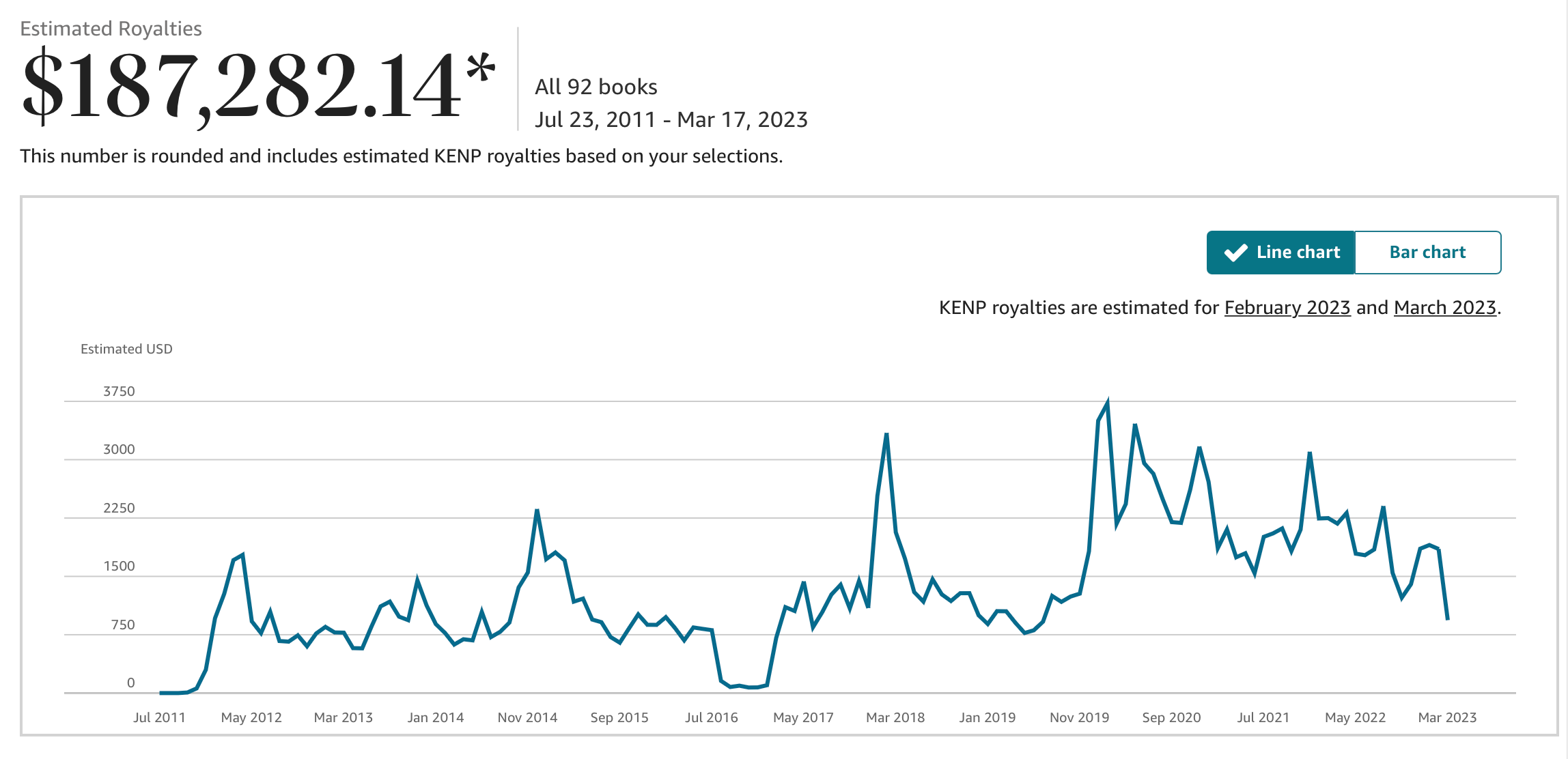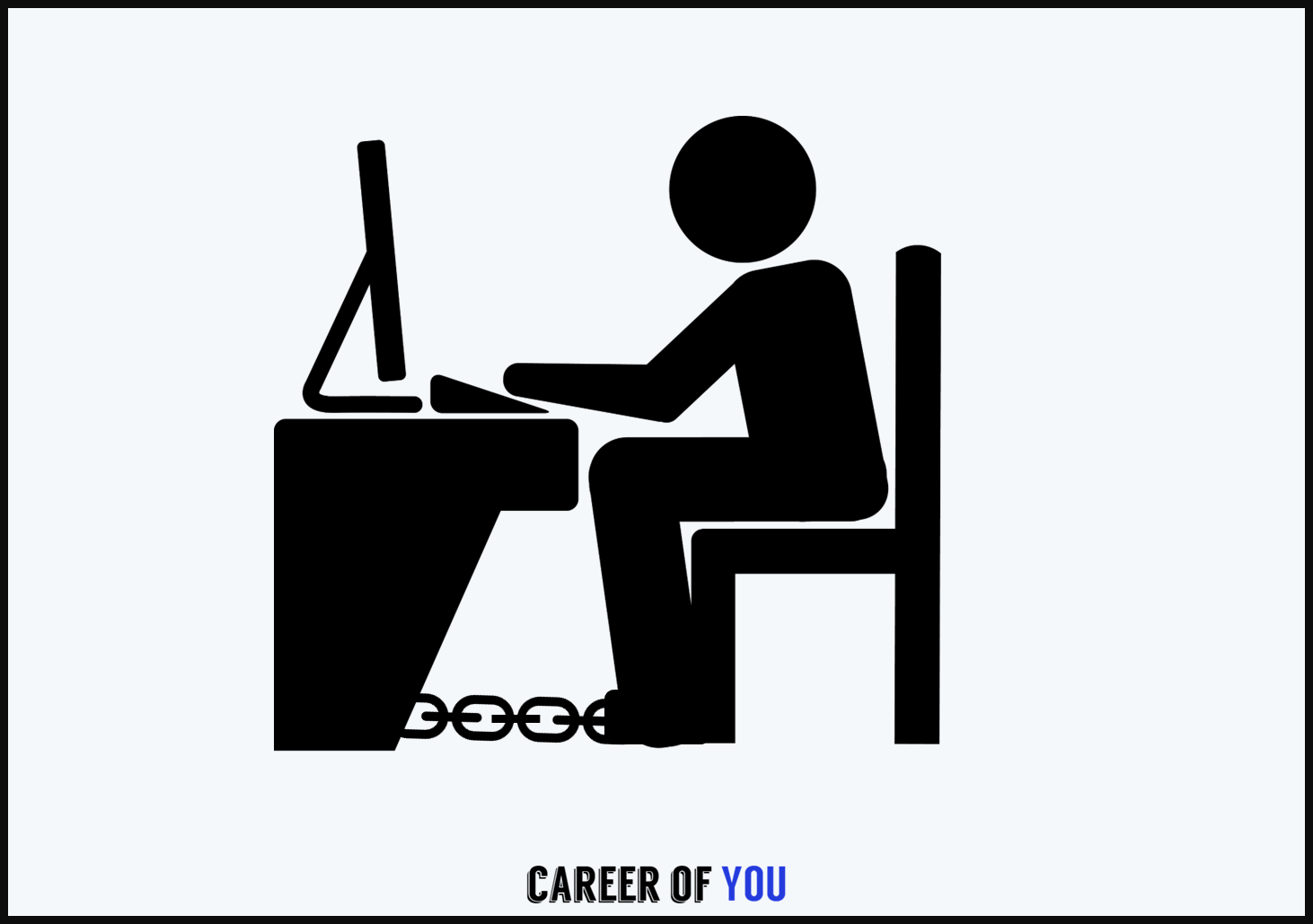Something is happening in the world of work. More and more people are quietly earning a second income stream by crafting valuable products, and selling them online — sometimes at scale.
What’s interesting is that many of these people aren’t doing so in a frenzied attempt to escape their day jobs. Rather, they are taking advantage of the reach the internet provides to access a global audience, and in doing so supplementing their income.
Last month, I came across a tweet from Greg Lim, about how he has built a portfolio of Amazon books that have earned him close to $190k in royalties; all while working full-time and juggling a busy family life.
Wanting to understand how Greg has achieved this, and why given he is fulfilled by his day job, I sat down with him to discuss.
Hello! Who are you and what side business did you start?
Hello, my name is Greg Lim and I’m a part-time author. I’ve published more than twenty software development books on Amazon all while working full time. I’ve sold over 50,000 books and earned nearly $190,000 in royalties (not including stores like IngramSpark and Apple books).
How did you come up with the idea?
I originally studied to be a software engineer and worked for Credit Suisse. As a hobby, I started playing around with making small apps in 2010 and selling them on the app store.
Then Amazon’s self-publishing service came along, and it caught my attention.
At the time I had a job teaching software development to students, and as part of this, I was writing training manuals. So, I was already writing short, how-to books for students. I simply took this one step further and wrote and published a short book on how to use Excel VBA back in 2011. Things started to snowball from there.
What’s your day job?
I decided to make a big career change, from IT — I’m a church pastor!
Given you have a successful career, why made you want to start a side business?
Firstly, the additional income is always welcome. Secondly, I write things that I like to learn about, which is a big motivation. It’s not a grind, it’s not a second job I dread. It’s something I look forward to.
Learning is a big motivation for me — which is why I focus on writing books. Writing books gives me a formal reason to learn a subject properly, digest it, and share my insights with the rest of the world.
Between, work, family, and your side business how do you balance it all?
I like focusing on writing books because it doesn’t take up too much time. I only spend about an hour a day writing and never more than that. I don’t write on the weekends as this time is reserved for my family.
In the past year, I’ve run a few cohort courses teaching people how to write and self-publish books, and my income from this has been quite high. But it took up a lot of my time, and it’s very repetitive so I didn’t learn a lot from it. So, I’ve stopped doing this for now, and I’m focused on more semi-passive ways to make money. For instance, I’ve taken my teachings from my live sessions and turned them into a course on how to self-publish instead.
No matter what my ministry and my family are my priorities. Whenever my main work piles up or my family needs me, I’ll drop all my writing. This business lets me keep control to do that. I don’t have any clients to answer to. I write what I want when I want.
Take me through the process of making your first $1000 on the side
Making my first $1000 online felt out of this world. It was in 2011 following the launch of my book on Excel VBA. Once I’d published it on Amazon it reached $1000 in royalties within three months.
My mind was blown. Earning money online was very new at the time.
How have you scaled your business to make a consistent income on the side?
I took three years out from work to go to bible school — I knew as a pastor I wouldn’t make the same money as I could in software engineering, so I started to get serious about book writing again in 2015.
$200k is a big number, but it’s taken time to get there. On average my book writing brings in about $20k per year. So, this is not a get-rich scheme, but a very decent side income.
One way I’ve made the business manageable is by keeping my books short, with no fluff, and action-focused. Each book is about 100 pages long and I try to timebox the development of a book into 3 months from start to finish — that includes research, writing, editing, and cover design.
I also don’t spend any time on marketing — I don’t have time to be active on forums or write articles to promote my books. I rely on the organic engine of Amazon.
The beauty of selling something on Amazon is buyers are actively looking for information on a specific problem. They are primed and already have their credit cards out.
Sure, it might be more lucrative to build an audience around my products, but I have a full-time job and 3 young boys. This is very much a set-and-forget business — I write a book, publish it, and move on to the next project.
How has building on the side impacted on your primary career?
It’s made me a truer version of myself. Having a financial cushion has made me more willing to take risks at work, more willing to challenge my boss, and made me more relaxed about work pressure as I don’t rely solely on my salary to survive. All of this has made me perform better in my primary career.
Putting myself out there online has given me a real confidence boost — I’ve had offers from traditional publishers to do book deals and paid speaking event opportunities.
It’s also opened up opportunities to meet new people from all over the world and make friends with people I would otherwise have never encountered.
Do you intend to balance your career with your side business indefinitely? Or will you eventually focus on one full-time?
I’ll always be a pastor first and an author second. But I love doing both.
What’s next for your business?
In May, I started applying all the strategies that worked for me on Amazon and applied them to Udemy.
I’m developing a series of courses teaching software development. I’ve got one on Next.JS 13 which is a javascript framework for building user interfaces; and I’m about to release a LangChain Crash course, which is the technology behind chat GPT.
I find I can create a course in about half the time I need to write a book, and the perceived value of a course is higher, even though it’s the same information.
What advice would you give to mid-career professionals who would like to follow a similar portfolio career path to you?
My main advice is that family is your priority — if a side hustle hurts that, it’s far better to drop it.
But if you do want to do something, don’t overthink it — just try publishing a short book or course and see where it leads. If you want to try self-publishing, I would give the following advice:
1. Write about trends: I try to write about what’s popular. Right now I’m writing about chat GPT and LangChain.
2. Assess demand: Before you start writing assess how much demand there is for a product. You can do this by looking at the Amazon bestseller rank of existing books. If It ranks 150,000 it will probably be selling at least one book a day.
3. Write a useful book: The most important thing for non-fiction. Write a useful, high-quality book. Understand the problem your reader is trying to solve and help them solve it.
4. Provide support to your readers: I include a support email address in my books and respond to any further questions readers have. This helps me build a relationship with my audience.
5. Request reviews: In exchange for additional support I gently ask readers for a review. Reviews are the most important thing for getting your books highly ranked on Amazon.
6. Price low at first: If I was starting from scratch I’d set a low price for my books, around $2.99, to get people buying, get reviews, and get highly ranked. Then I’d increase my prices over time.
7. You don’t need an audience to get started: I had zero social media presence when I started. Today almost none of my sales come from Medium or Twitter. I focus on writing books and leave the marketing to Amazon.
Where can people learn more about you?
You can find me on Twitter @greglim81.
Takeaways from my chat with Greg
There’s a lot you can learn from listening to Greg about how to think about work and life. If I had to pick three things they would be:
- Find a career that is intrinsically motivating: There have clearly been times when Greg could have chased more money. He could have stayed at Credit Suisse. He could have run more cohort-based courses. While money is certainly a motivator, it’s clear his primary motivation is learning. Greg just loves figuring out how things work, whether that’s a new software language, a new business model, or how to counsel a parish. Being a lifelong learner is what fills him up.
- If you have a busy life avoid service-based side hustles: Greg was very clear throughout our conversation that his ministry and family come first. To keep things sustainable, keep life enjoyable, and keep in control of his time, Greg focuses on side businesses that are “set and forget”. He can work on it as much or as little as he wants. He’s in control of his time.
- Digital products are a semi-passive asset class: Greg differentiates between active income from his primary career, semi-passive income from his portfolio of books, and fully-passive income from stocks and shares. After our conversation, he made the point to me “additional income streams don’t just have to come from stocks or property investment. If you don’t have lots of money to invest why not write a book, publish a course, or create some simple software instead? It’s a far more accessible way to make a semi-passive income”.




